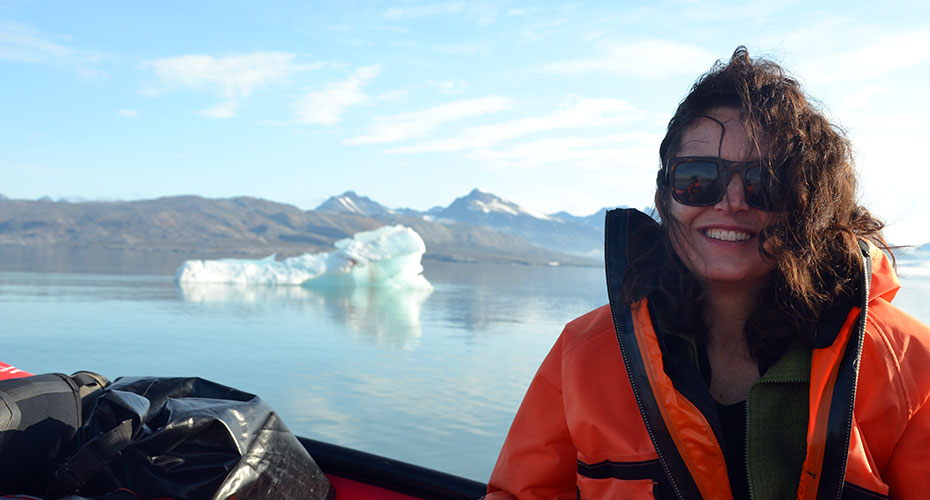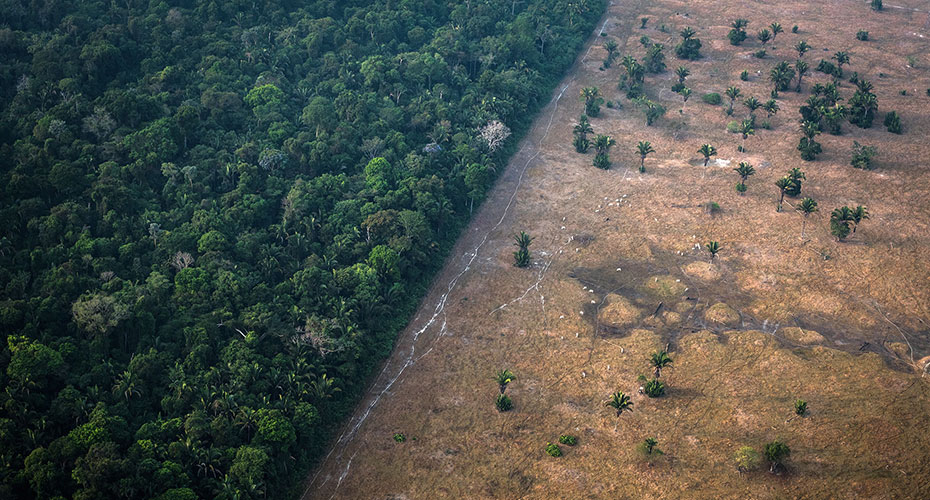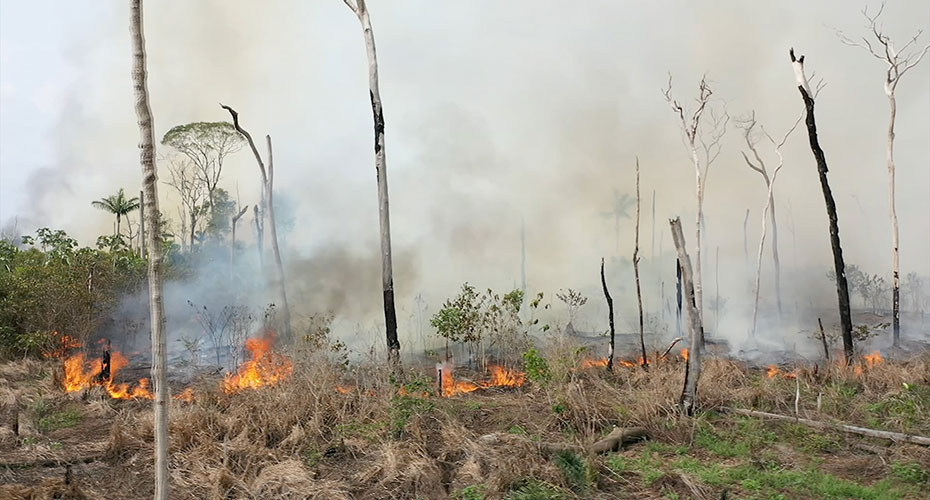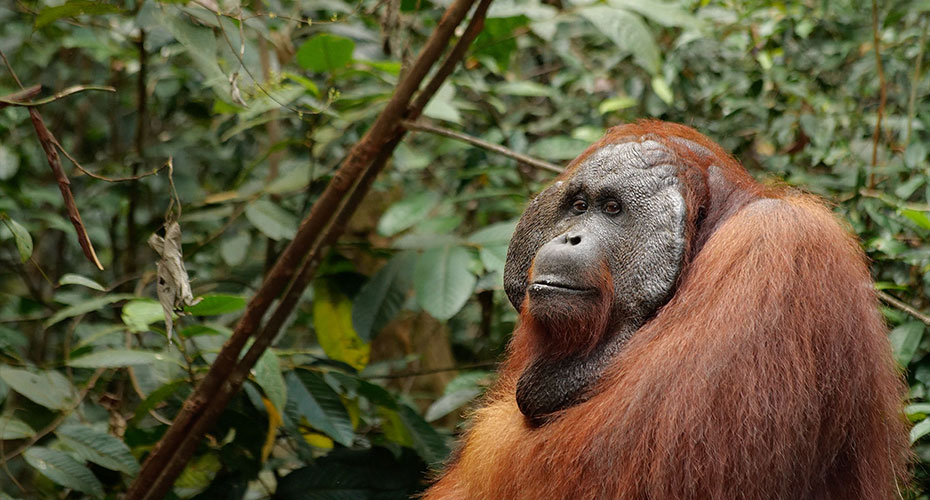Triggering Positive Tipping Points to regenerate ecosystems
Photo: ©iStock
1 March 2021
5 mins to read
Human activity is putting unprecedented pressure on the natural world.
Many ecosystems have been degraded or destroyed – with devastating consequences for people, biodiversity and the climate.
Global warming could trigger Tipping Points that would lead to the loss of ecosystems including the Amazon and boreal forests, and tropical coral reefs.
Rapid action is required.
Positive Tipping Points in human societies could transform our relationship with the natural systems that sustain life on Earth.
Researchers at the University of Exeter are working on collaborative projects around the world, investigating the causes of ecosystem destruction and searching for shifts that could tip us towards a more sustainable future.
In 2015, wildfires in Indonesia's peatlands burned for months, producing smoke that would cause tens of thousands of premature deaths, and emitting the equivalent of several times the UK’s annual carbon emissions in just a few months.
Wildfires now burn in these peatlands every year, mostly started as part of agricultural practices and worsened by our warming climate and deforestation.
Exeter researchers are helping to unravel the economic, social, political and scientific challenges of the problem – and they believe it is "fixable".
"Working with local communities, researchers, government and non-governmental organisations, we are searching for Positive Tipping Points that combine economic development with restoring these ecosystems," said Professor Frank Van Veen, Professor of Ecology and Conservation.
“Working with local communities, researchers, government and non-governmental organisations, we are searching for Positive Tipping Points that combine economic development with restoring these ecosystems.”
Professor Frank van Veen
Professor of Ecology and Conservation
An initial project has empowered local people, helping them to establish fire-fighting teams and restore forests that surround their agricultural land.
Communities get paid for their conservation work – and early results indicate that places controlled by these communities have fewer fire problems than neighbouring areas.
Longer term, a large new project aims to find solutions to the challenge of sustainably managing agriculture on degraded peatlands in a way that removes the huge environmental impact of human activities on them, and at the same time revitalises the livelihoods of the people who live there.
"Once we get economic development and sustainable management interacting positively, even in a limited area, we believe that will spread organically," Professor Van Veen said.

Photo credit: Andrew Merry, Getty
People and the planet
Professor Angela Gallego-Sala, Professor In Ecosystems and Biogeochemical Cycles, is involved in Exeter's work in Indonesia, and also leads a major project funded by the ERC (TroPeaCC) that is examining how tropical peatlands are involved in the carbon cycle, and another funded by NERC (ICAAP) working to understand how Arctic peatlands will respond to climate change.
"The ultimate aim of the work I do is to highlight the importance of peatlands, in order to encourage better management," she said.
“Peatlands are incredibly diverse ecosystems – existing everywhere from the Arctic to the Amazon – and many are under threat due to human activity.
We are still discovering new intact peatlands, and by raising awareness of these forgotten ecosystems – and the billions of tonnes of carbon they contain – we hope to spark meaningful conversation action.”
Professor Angela Gallego-Sala
Professor In Ecosystems and Biogeochemical Cycles

Professor Angela Gallego-Sala in Svalbard, Norway © Dan Charman
"Peatlands are incredibly diverse ecosystems – existing everywhere from the Arctic to the Amazon – and many are under threat due to human activity.
"We are still discovering new intact peatlands, and by raising awareness of these forgotten ecosystems – and the billions of tonnes of carbon they contain – we hope to spark meaningful conversation action."
Like the project in Indonesia, Professor Gallego-Sala says her work on peatlands worldwide aims to find solutions that "work for people and the planet".
This focus on aligning human prosperity with sustaining the natural world is a central theme of positive tipping points.
Spreading the word
This approach – planting seeds of positive change – is a central theme of Positive Tipping Points.
One project that has already tipped into a cascade of positive action is TIST, a network that now contains more than 100,000 smallholder farmers in Kenya, Uganda, Tanzania and India.
TIST's members have planted more than 20 million trees over 20 years.
In addition to the direct benefits of firewood, fodder, fruit and shade, trained farmers are employed by the programme to visit each farm and quantify tree growth, generating verified carbon credits which are sold on the international carbon market, with profits returned to the farmers.

“Subsistence farmers in countries like Kenya are very vulnerable to climate change, drought and soil erosion – but when they act in their local area, the benefits are very clear”
Dr Tom Powell
A.G. Leventis Foundation Global Systems Institute Impact Fellow
"This is a really good example of a grassroots Positive Tipping Point," said Dr Tom Powell, one of the Exeter researchers who helps study TIST's impact.
"Subsistence farmers in countries like Kenya are very vulnerable to climate change, drought and soil erosion – but when they act in their local area, the benefits are very clear.
"The resulting feedbacks can really build and cascade through communities, creating resilient change with the buy-in and control of the people – it's by them, for them, and it really makes a difference to them."

Photo credit: Bloomberg Creative, Getty
Few limits
One part of Exeter's research involves monitoring TIST's impact via satellite imaging.
Unsurprisingly, areas managed by TIST farmers get greener – but the images show this effect spreads for several hundred metres around TIST farms.
TIST has already spread rapidly from farmer to farmer – and the team now want to help farmers interact online so TIST's methods can jump to new areas.
"A really significant portion of the Earth's surface is classified as degraded forest or marginal agricultural land and is farmed by smallholder farmers," Dr Powell said.
"With the right incentives and the right information, I think there are relatively few limits to the kind of difference those farmers can make."
“With the right incentives and the right information, I think there are relatively few limits to the kind of difference those farmers can make.”
Dr Tom Powell
A.G. Leventis Foundation Global Systems Institute Impact Fellow
In Brazil, Exeter researchers are part of a project that creates tree-based farmland for marginalised communities in deforested parts of the Amazon.
"This project is very much about finding economically viable solutions for small-scale farmers that are an alternative to the massive, widespread agriculture based on soy and cattle, which has destroyed rainforests and savannahs," said Professor Toby Pennington, Professor of Tropical Plant Diversity and Biogeography.

Credit: Sky News, Getty Images

Photo credit: iStock

Positive attitude
Professor Pennington works on a variety of Latin American ecosystems – many of which are severely degraded – but he believes a global Positive Tipping Point of "attitude" provides hope for the future.
"The UN Decade of Restoration began this year, and international agreements have committed us to restoring 350 million hectares of degraded land," he said.
"Amazon deforestation is widely recognised as a problem, but few people realise that Latin America's savannahs and dry tropical forests have suffered far greater destruction in terms of the proportion lost.
"Research that's going on at Exeter is specifically trying to understand how plants grow in these systems, and also working with local organisations to make sure that restoration projects can take advantage of this cutting-edge science."
“Research that's going on at Exeter is specifically trying to understand how plants grow in these systems, and also working with local organisations to make sure that restoration projects can take advantage of this cutting-edge science.”
Professor Toby Pennington
Professor of Tropical Plant Diversity and Biogeography
Meet our researchers


Explore more research

Triggering Positive Tipping Points in power generation
In the UK, power generation from coal has dropped to almost nothing within the last five years.

Positive Tipping Points accelerate electric vehicle revolution
Electric vehicles (EVs) are better for the environment than petrol or diesel cars.




